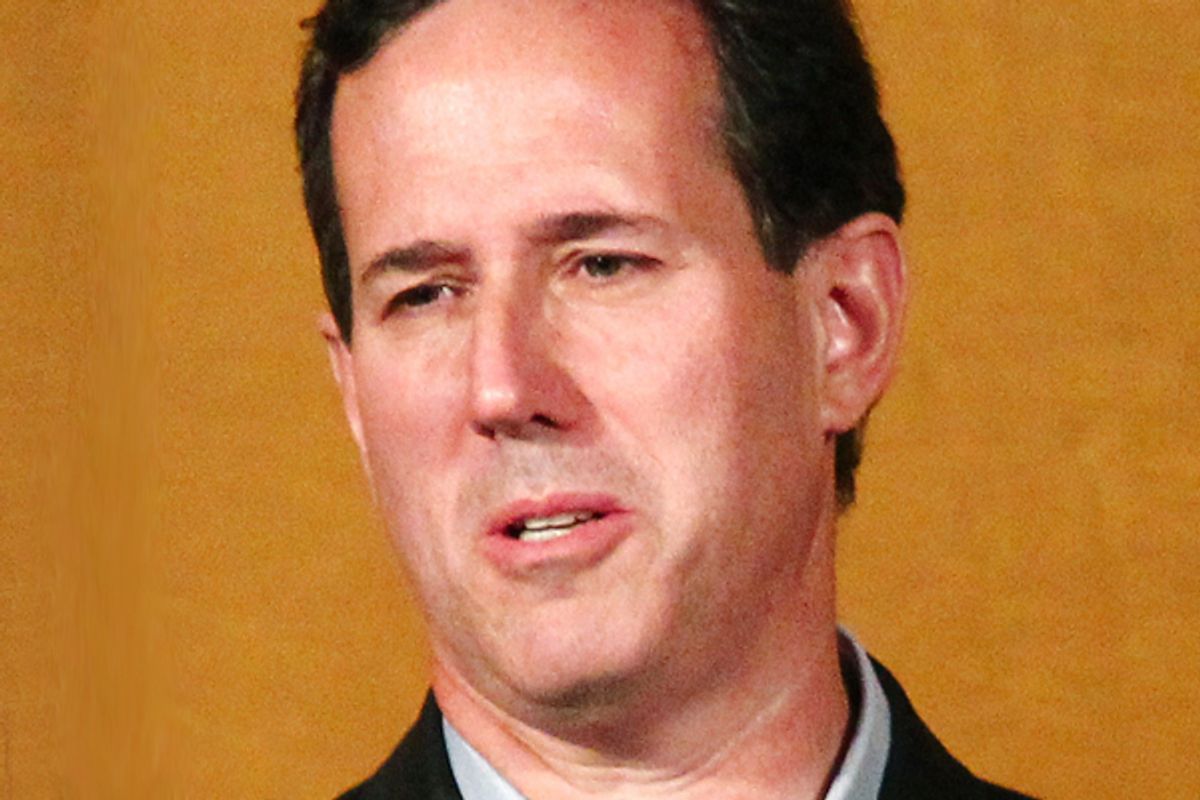After publishing an anti-pornography pledge on his website last week, Rick Santorum courted questions this weekend about how, exactly, he plans to attack smut. He didn't make it clear and instead continued to rely on vague rhetoric about the threat to children.
On CNN's "State of the Union" Sunday, he said, "Under the Bush administration, pornographers were prosecuted much more rigorously than they are ... under the Obama administration." He added, "My conclusion is they have not put a priority on prosecuting these cases, and in doing so, they are exposing children to a tremendous amount of harm. And that to me says they're putting the unenforcement of this law and putting children at risk as a result of that."
If one were prone to uncritical acceptance of political rhetoric, it would be easy to assume from Santorum's remarks that the Obama administration isn't prosecuting child porn. In all of his statements about smut, the GOP candidate is always careful to bring it back to the children. Santorum takes no care to clearly define what the threat to children is, exactly – whether it's that they might be forced into illegal underage porn or that they might happen upon adult material online. The conflation of adult pornographers with child pornographers is a classic anti-smut move, much as child sex trafficking gets uncritically folded into debates about consensual adult sex work.
Let's be clear here: The Obama administration continues to prosecute child pornography just as the Bush administration did. The real change is in obscenity prosecutions involving consenting adults: As I've written about before, the Obama administration hasn't put a priority on these cases. Three holdover cases from the Bush years have been prosecuted, and to pathetic ends: a plea bargain with no prison time, a dismissal and, most recently, a mistrial. It's hard to see how those cases – the very best the Department of Justice could find – were a good use of taxpayers' dollars.
Presumably, hopefully, Santorum understands the distinction between child porn and adult porn, obscenity law and child pornography law, but he's using ambiguity here to help his case. The truth is that the prosecution of adult obscenity cases -- which are nowhere near as legally clear-cut as he suggests -- has very little to do with children. If his concern is about kids being able to find adult material online, he could propose stricter access laws. What he's really after, though, is making consensual, adult porn to which he morally objects disappear. Children just make for a much better excuse.



Shares